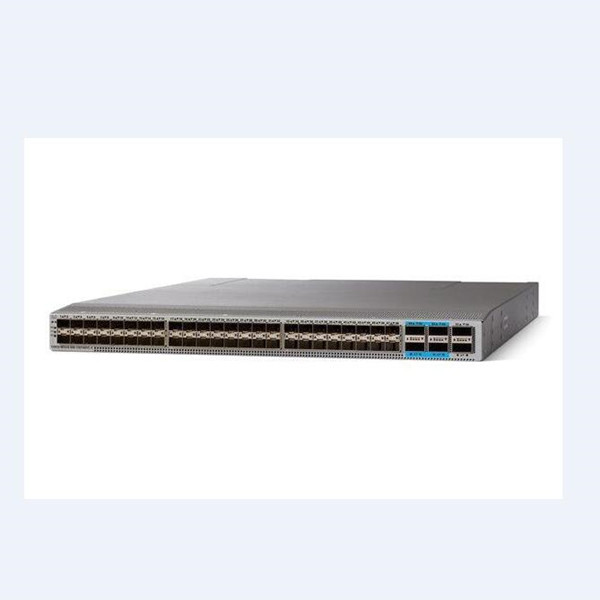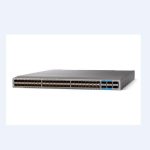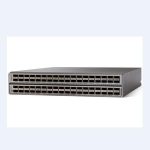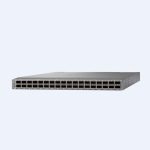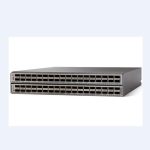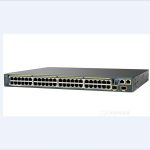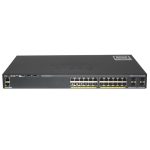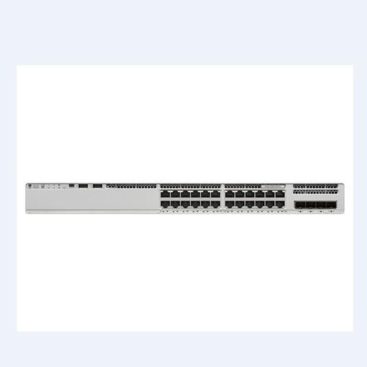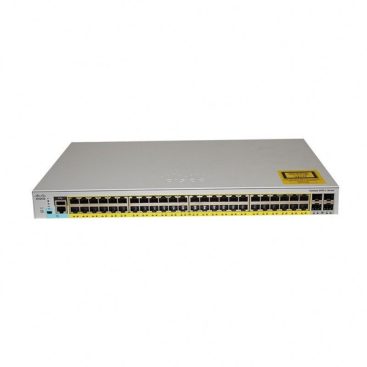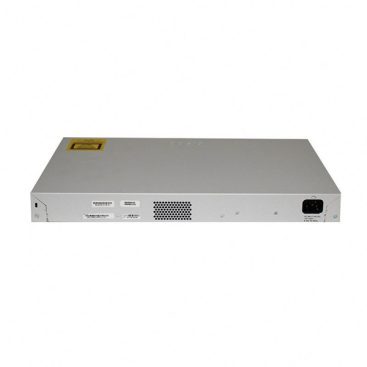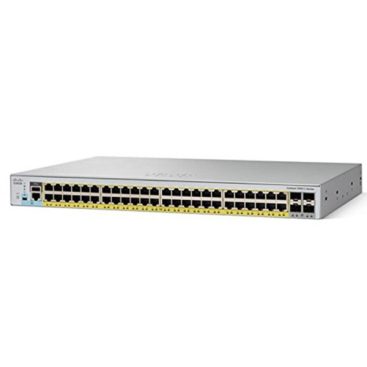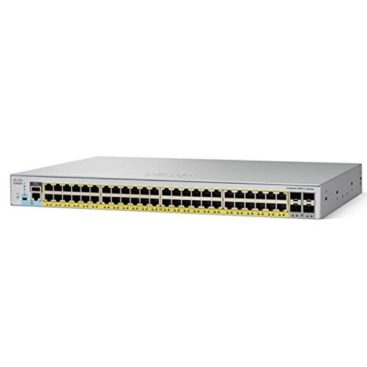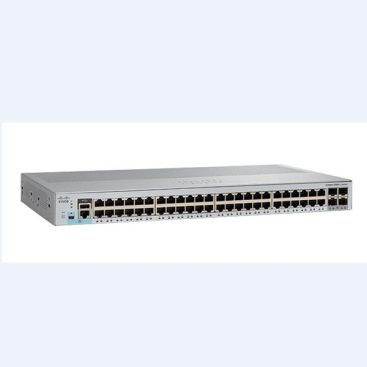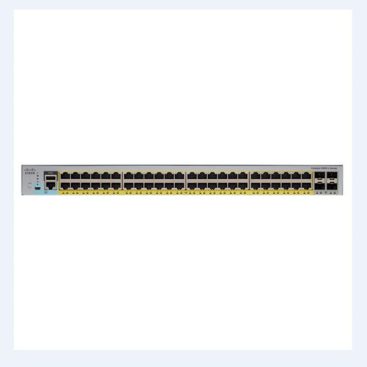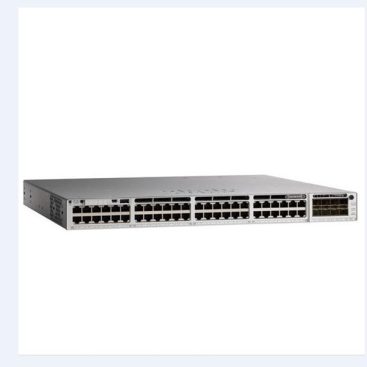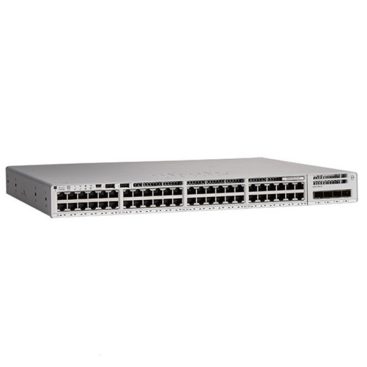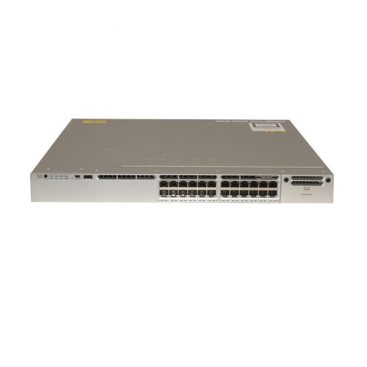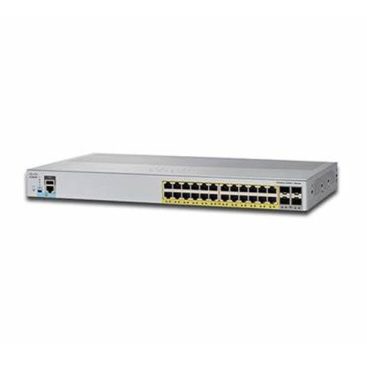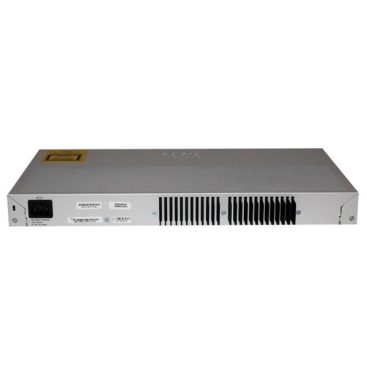Cisco Nexus 9200 Series Switches
- Description
- Inquiry
- miraiki-po
Description
Cisco Nexus 9200 Series Switches are the latest addition to the Cisco Nexus 9000 Series Switches. Ny Cisco Nexus 9200 platform consists of industry-leading ultra-high-density fixed-configuration data center switches with wire-speed Layer 2 ary Layer 3 capabilities to support enterprise applications, carrier hosting, and cloud computing environments. This compact family of switches supports multiple port speeds for a flexible combination of 1/10/25/40/50/100 Gbps connections. The Nexus 9200 switch features the widely deployed and industry-leading Cisco® NX-OS software operating system. Designed for programmable switch fabrics, this switch brings flexibility, mobility, and scalability to operators and IaaS/cloud providers, as well as customers who want to take advantage of the DevOps operating model and toolset. Provides a programmable network with automated configuration and management capabilities.
Cisco Nexus 9200 Series Switches Features
- Excellent performance and scalability
This platform provides wire-speed Layer 2 ary Layer 3 switching on all ports with bandwidths up to 7.2 Tbps and throughput exceeding 5.35 bpps.
This platform offers up to 30 MB of the shared buffer, making it the best choice for scalable data center and big data applications. The Nexus 9200 also fine-tunes non-drop queue buffer allocations and is, Ary noho izany, an ideal platform for IP storage design.
- Virtual Extensible Local Area Network (VXLAN)
The platform provides local wire speed VXLAN routing.
Border Gateway Protocol (BGP) The Ethernet Virtual Private Network (VPN) control plane provides scalable multi-tenancy and host mobility (see VXLAN Network with MP-BGP VPN Control Plane for details).
Cisco Nexus 9200 Series Switches models and Specifications
| MODELY | Description |
| Cisco Nexus 92160YC-X Switch | 48 10/25 Gbps SFP+ ports and 6 QSFP28 ports (4 out of 6 QSFP+ ports are 100Gbps ports)* |
| Cisco Nexus 9272Q Switch | 72 40 Gbps QSFP+ ports |
| Cisco Nexus 92304QC Switch | 56 40 Gbps QSFP+ ports and 8 100 Gbps QSFP28 ports |
| Cisco Nexus 9236C Switch | 36 100 Gbps QSFP28 ports |
Cisco Nexus 92160YC-X Switch

is a single-rack-unit (1RU) switch with 3.2 Tbps bandwidth and 2.5 bpps throughput. The 92160YC-X’s 48-port downlink port can be configured as a 1/10/25 Gbps port, giving you deployment flexibility and investment protection. The uplink can support up to four 100 Gbps or up to six 40 Gbps ports, or a combination of 10, 25, 40, SY 100 Gbps connections, giving you flexible migration options.
it gives users a better understanding of their network traffic and telemetry data. See the latest software release notes provided here for all supported features. This new feature not only helps administrators improve network operations, but also provides a wealth of data resources to help improve the network infrastructure to increase return on investment (roy).
Cisco Nexus 9272Q Switch

is an ultra-high-density 2RU switch that supports 5.76 Tbps of bandwidth with 72 tsy modular 40 Gbps QSFP+ ports with throughput exceeding 4.5 bpps. The 9272Q is equipped with up to 35 ports and can be converted to a total of 140 10 Gbps ports.
Cisco Nexus 92304QC Switch

is an ultra-high-density 2RU switch that supports 6.1 Tbps bandwidth with 56 40 Gbps QSFP+ ports and eight 100 Gbps QSFP28 ports with throughput exceeding 4.8 bpps. The 92304QC can be converted to a total of 64 10 Gbps ports with up to 16 seranana
Cisco Nexus 9236C Switch
![]()
a 1RU switch that supports 7.2 Tbps of bandwidth with 36 100 Gbps QSFP28 ports and throughput of over 5.7 bpps. Each port on the 9236C can be individually configured for one 100Gbps, EFATRA 10 Gbps, EFATRA 25 Gbps, iray 40 Gbps, or two 50 Gbps. The switch’s compact form factor provides the industry’s best density and flexibility to meet the needs of data center backbone or aggregation connectivity.
Cisco Nexus 9200 Series Switches Benefits
High availability of hardware and software
1, 64-way equivalent multipath (ECMP) routing implements a layer 3 fat tree design. This feature helps organizations avoid network bottlenecks, improve resiliency, and scale up with virtually no network disruption.
2, Patching ensures uninterrupted upgrades in most situations.
3, The switch uses a hot-swappable power supply unit (PSU) and a fan with N+1 redundancy.
NX-OS operating system specially designed with various proven innovations
1, Open programmability to support built-in DevOps automation tools such as Puppet, Chef, ary Ansible.
2, NX NX-API supports a common programming approach for Cisco Nexus switches.
Switch-free startup and configuration of the switch through Boot Auto Provisioning (POAP) dramatically reduces provisioning time.
3, The Python scripting engine is automated and remote in the data center.
4, Advanced Cache Monitoring reports real-time buffer utilization on a per-port and per-queue basis, enabling organizations to monitor traffic bursts and application traffic patterns.
5, Supports a complete suite of Layer 3 unicast and multicast routing protocols, including BGP, Sokafy ny lalana fohy indrindra aloha (OSPF), Enhanced Interior Gateway Routing Protocol (EIGRP), 6, Routing Information Protocol Version 2 (Ripv2), Protocol Independent Multicast Sparse mode (PIM-SM), Source Specific Multicast (SSM), and Multicast Source Discovery Protocol (MSDP).
7, Fragment routing allows the network to forward Multiprotocol Label Switching (MPLS) packets and perform traffic management without Resource Reservation Protocol (RSVP) 8, Traffic Management (ny). It provides an alternative control plane for growing network scalability and virtualization.
miala tsiny, tsy misy attachement misy !


